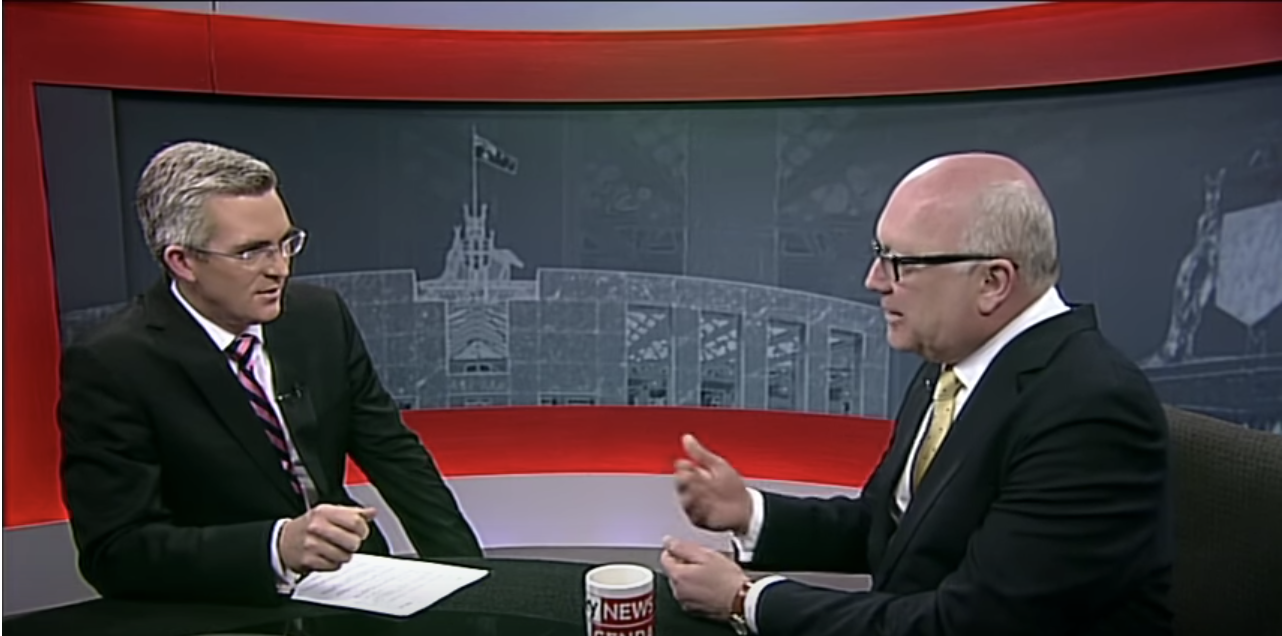“Forget about the pressure and just go for it.” Words that sound cheesy, but when they come from one of Australia’s greatest political reporters, they’re words to live by.
David Speers is the face of Sky News political reporting. With two Walkley Awards to his name and a trail of successful interviews, he certainly is a formidable presence in Canberra.
A tall clean-cut man with a kind face, and a self-confessed “massive nerd”, Speers doesn’t immediately look like the sort who can pull apart a politician’s argument with a question or two. But when he has to, Speers is a bulldog in the studio. Just ask George Brandis, Christopher “The Fixer” Pyne or David Feeney. This is not a man to be trifled with.

David grew up in Sydney and became interested in politics in his high school years. He graduated in 1992 into a world where the Cold War had just ended, and there was global political turmoil.
From there his political fascination grew and, moving into political radio, he swiftly rose through the ranks to become one of the most well-known faces in the Australian political sphere.
“Turn on the ears and really listen to what they’re saying,” @David_Speers sayscreading between the lines can really make a great interview when speaking with politicians
— Hatch@Macleay (@HatchMacleay) March 6, 2018
Speers worked in radio, online and TV journalism, but he is most famous for his hard-hitting interviewing style and hosting of leadership debates. And his biggest piece of advice to this humble interviewer? That the most important element of any good interview is all about listening; being prepared to drop all your questions and “just turn on the ears and really listen to what they’re saying”.
Citing his infamous interview with George Brandis on metadata (pictured above), Speers discussed how, upon sensing that Brandis was uncomfortable discussing the subject, he pounced on it.
Favourite interview of all time? The George Brandis metadata interview, which had a real “Clarke and Dawe” feel about it, says @David_Speers #auspol #macleayjournalism
— fiona west (@fiona_west) March 6, 2018
But do his interview subjects take it personally? Can a journalist be friends with his interviewees or does a sense of distance have to be maintained for the sake of neutrality? Speers would argue in most cases, no. “Sure you can have a drink and be mates, but at the end of the day you have a job to do,” he said.
Has politics become more divisive? Yes says @David_Speers and it began with Pauline Hanson. Now it carries further with social media @MacleayCollege
— Monica Attard (@AttardMon) March 6, 2018
Speers has also lent his keen reporting skills to an altogether more dangerous conflict, having reported from Afghanistan and Iraq, working alongside the Australian military and helping to cover their activities in hostile territory. It’s very different to prior wars such as Vietnam, according to Speers, as journalists are no longer seen as a neutral party: “Being on the front lines of Afghanistan or Iraq is a lot tougher as a journalist these days, because you really are a target.”
And the most important rule to a man who has interviewed everyone, from soldiers, to prime ministers? “There’s no dumb questions, that’s a general rule,” he advised.
Journalists make a living off curiosity and asking questions, and Speers is one of the very best at asking the right ones at the right time. – Interview and story by Max Gay
“There’s no dumb questions. That’s a general rule,” @David_Speers tells aspiring journalists to think about what they want to ask politicians & just go for it.
— Hatch@Macleay (@HatchMacleay) March 6, 2018
“Being on the front lines of Afghanistan or Iraq is a lot tougher as a journalist these days, because you really are a target,” @David_Speers on the restraints of war reporting in the present day.
— Hatch@Macleay (@HatchMacleay) March 6, 2018


